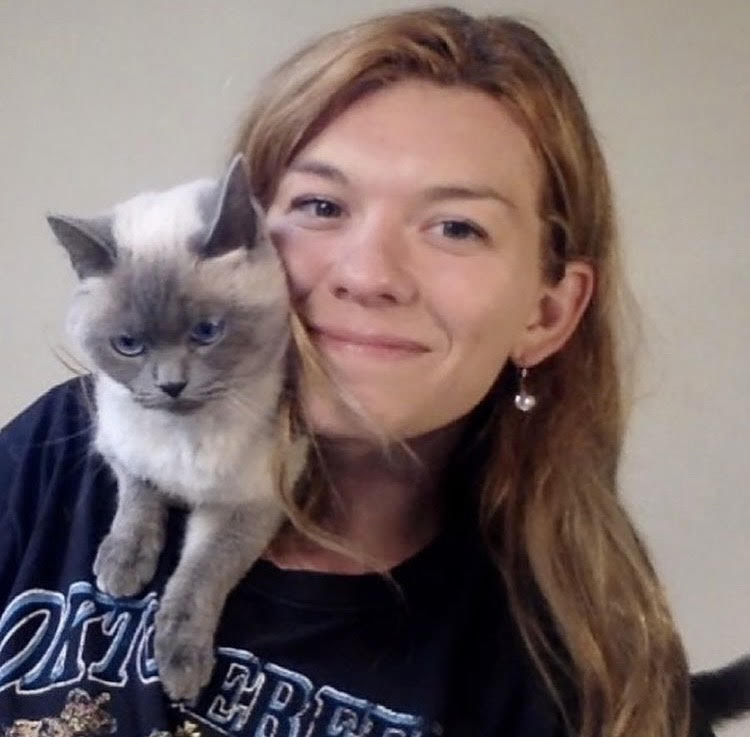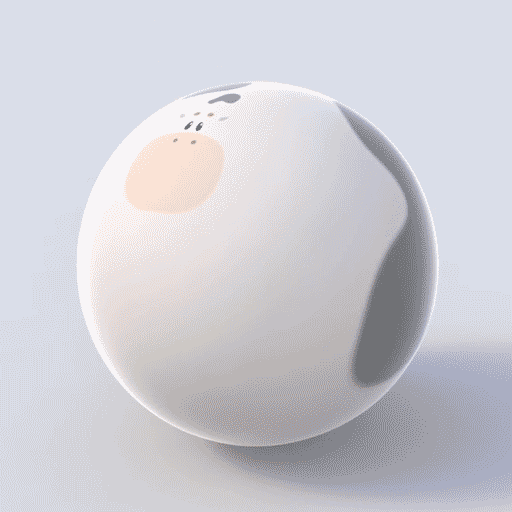From the Depths of Wikipedia: an interview with Wikimedian and influencer Annie Rauwerda (original) (raw)

The Wikimedia movement is based on the idea that knowledge should be free and reusable by anyone, for any reason. There is perhaps no better example of this than the work of Annie Rauwerda and her @depthsofwikipedia project. The project, spanning across Twitter, TikTok, and Instagram features Rauwerda as she shares short and interesting stories about recent Wikipedia articles that she has discovered. Some are funny, others informative, and all of them are from the depths of Wikipedia.
The Movement Communications team at the Wikimedia Foundation interviewed Rauwerda over email to learn more about her work, what it means to be an editor, and life on the internet. A condensed version of our conversation is shared below.
When you meet someone new, how do you explain how you spend your time?
I usually introduce myself as a student, but if I have to define Depths of Wikipedia, I say different things depending on whom I’m talking to. To less tech-savvy people, I call it a “blog,” and other times I call it a “meme page”. A surprisingly large portion of people I meet already follow it, so when they see that I run @depthsofwikipedia, they know exactly what I’m talking about.
How did you get started posting funny Wikipedia articles?
In the spring of 2020, while I was a sophomore in college, the world shut down and I found myself with more free time than I could ever remember. I spent an exorbitant amount of time clicking through Wikipedia, falling into rabbit holes like Timeline of the far future and List of common misconceptions. I started screenshotting my favorite little snippets, collecting them like trading cards, and one day I started posting them on Instagram. For the first four months or so, the only followers were my close friends, but in July of 2020, the account started gaining followers. Now it’s over 400,000!
What’s the process for discovery and producing your videos? How do you know what works? What posts do people like?
I have no idea what works and I struggle to even articulate what makes a fact ‘interesting.’ For the first few months, I clicked through the “see also” section in articles to find post-worthy pages, but now I get a lot of submissions from followers. I try to operate under the understanding that if I think a topic is super interesting, other people probably will too.
Some posts have a few number of words and possess a relatable quality like memes. For example, the subheadings for pizza-maker Sam Panopoulus used to read “Life, Pizza, Death,” which people thought was funny. Other posts are text-heavy and tell absolutely ridiculous stories, like the 1904 Olympic Men’s marathon — a riveting saga that involves hitchhiking, rat poison, rotten apple food poisoning, wild dogs, and research on ‘purposeful dehydration.’
What inspires you?
I’m inspired by my parents, who were both middle school teachers and have an uncanny knack for making learning fun. I’m also inspired by all the editors who work their asses off to maintain Wikipedia — for strangers, for free.
The content you create spans topics, but as you have mentioned, resonates with people. In your opinion, what is the value of trivia?
Like many of life’s delights, trivia is impractical. But that doesn’t mean it’s unimportant! I find endless joy in fun facts, and I hate the whole idea of ‘useless knowledge’ because even the most obscure facts inform your worldview. Why must learning have an end goal beyond quenching curiosity? I imagine that learning feels joyless when it’s part of the slog toward a series of acronyms (CEO, VP, etc). Plus, ‘trivial’ topics can have not-so-trivial implications. Open-ended research yields earth-shattering discoveries all the time!
So, sure, reading a Wikipedia page may not make you an expert— a researcher who has dedicated her life to studying an enzyme will know infinitely more than someone who simply read the enzyme’s Wikipedia page. But it’s preposterous to expect everyone to have a “deep understanding” of everything, and I don’t know why that would ever be an encyclopedia’s goal.
How has your endeavor with @depthsofwikipedia changed over time as a Wikimedian “inside” the movement?
After I started editing, I realized how much time editors must spend fixing vandalism instead of taking on more important projects. I used to appreciate the humor of a goofy (but bad) edit, like the Deleted articles with freaky titles, but now I’m less amused.
I started editing in 2020 after I got involved with the incredible Wikimedia NYC chapter, and together we hosted an online edit-a-thon in January 2021. I’m still learning more about editing all the time.
Besides the edit-a-thon, I’ve co-hosted trivia at the Wikimedia North America conference and a Wikimedia conference in the Netherlands! I want to keep encouraging new editors to get involved, and I’m super inspired by organizations like WikiProject Women in Red and AfroCrowd that work to diversify the editor base. I often feel like I’m pretty new to Wikipedia, but I’ve felt so welcomed by old and new editors alike. Wikipedia is the best place on the internet and I’m constantly amazed that strangers come together to create something so wonderful.
What’s a common misconception you find people have about Wikipedia?
I’m often surprised by how many people forget that they can edit Wikipedia. I get messages all the time requesting certain edits, and when I remind people that they have the power to make changes, they sometimes respond with “I didn’t know I could do that!”
What would you tell a younger person today learning about using Wikipedia for the first time? What was the attitude toward Wikipedia like when you were in school?
I used Wikipedia all the time starting in middle school, either for reading up on random topics or for Wikiracing my friends. I’m only a few months older than Wikipedia so the site and I have grown up together in some ways, and I remember the early days when attitudes toward Wikipedia weren’t quite as positive. I had a few grade school teachers who seemed to have a personal vendetta against Wikipedia— and a belief that it was depreciating knowledge.
One school librarian named Mrs. Baker frequently brought up the fact that Jimmy Wales didn’t allow his daughter to use Wikipedia (my cursory search isn’t bringing up a record of this statement, but please double-check me). She seemed to think that Wikipedia was a threat to information because anyone could edit, but I believe the community editing model is exactly what makes Wikipedia so accurate and (relatively) unbiased. If I had to give advice to a younger person about Wikipedia, I’d tell them to explore it. And to check the citations.
The work you create uses video and sound to a great effect. How do you approach taking something from one medium and transferring it to another?
Well, I certainly don’t want Wikipedia to turn into Tiktok or Youtube. That said, I really love multimedia elements in articles, especially goofy science gifs like this spherical cow by Keenan Crane.
What’s the worst thing about Wikipedia?
Wikipedia is pretty great. If I had to pick the “worst” thing, it might be the high barriers to entry. There are so many guidelines and rules on English Wikipedia that newbies must navigate, and it can be hard not to take personal offense to a reverted edit, nomination for speedy deletion, etc. I recently talked to a new editor who poured her heart into an article only to get all her edits reverted with little explanation. She felt crushed and misunderstood, and she told me this: “I guess Wikipedia is better off without me.” This was coming from a woman with a graduate degree, incredible writing skills, and a genuine passion for making the internet a better and smarter place! I convinced her to keep the faith, but I mourn all the well-intentioned editors who gave up too soon. I wish we had better ways of telling new editors “Keep trying! Don’t give up!”
What advice would you give Wikimedians in developing content or approaches to be more engaging?
Wikimedians don’t need any help developing engaging content! They’ve already created the best thing in the world (the only things that are better than Wikipedia are, like, water and air). That said, a lot of people don’t know about some of Wikipedia’s most fun features (like the list of unusual articles), and I think the Main Page “Did you know” section could be more interesting if it wasn’t limited to new articles.
To learn more about the Depths of Wikipedia follow the project on Twitter, TikTok, or Instagram. Thanks to Annie for agreeing to talk with us and for her project in highlighting the work of Wikipedians around the world.
This interview has been edited for clarity and length.

Can you help us translate this article?
In order for this article to reach as many people as possible we would like your help. Can you translate this article to get the message out?
